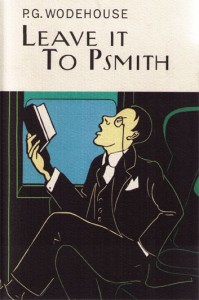 The mannered country-house farces of PG Wodehouse don’t lend themselves very well to adaptation as D&D adventures because they rely on intricate, delicate plot, which is hard for a DM to sustain, and a very specific dialogue style, which is hard to pull off on the fly (and if you think you’re managing it, you just might be making yourself annoying).
The mannered country-house farces of PG Wodehouse don’t lend themselves very well to adaptation as D&D adventures because they rely on intricate, delicate plot, which is hard for a DM to sustain, and a very specific dialogue style, which is hard to pull off on the fly (and if you think you’re managing it, you just might be making yourself annoying).
The beautiful spun-sugar plot constructions might not be usable, but the general premise of a Wodehouse novel is very thematic to D&D: “Idiot or idiots get into hilarious mishaps through a series of misunderstandings, overcomplicated plans, and bad judgement calls.” This is a perfect description of PC activity whenever combat is not involved.
Leave it to Psmith relies on one plot device that is usable in a D&D game: mistaken identity. Psmith and two other characters all claim to be a poet named McTodd; one of the other two claimants is actually McTodd, and one is an American gangster.
Try offering this as a puzzle for the PCs. They’re instructed to, say, give a powerful item to a certain NPC named McTodd. They find two McTodds, each claiming that the other is the imposter.
The two NPCs both have fairly good knowledge of their role, and differentiate themselves mainly by their attitudes. McTodd 1 is sputtering and angry: “How dare this imposter speak to me in my own house!” McTodd 2 seems amused by the situation and speaks flippantly: “You say I am not McTodd? Well, perhaps I am not. I’ve been wrong before.”
Various knowledge checks provide conflicting results: McTodd 1 explains a sudden disinclination for cake as the effects of a recent illness; McTodd 2 seems to have forgotten some obscure detail of his own history.
The gimmick here is that the DM does not know which McTodd is the real one either. The DM is keeping track of two separate possibilities, but until the PCs concoct a plan that will absolutely solve the mystery, it is a case of Schrodinger’s McTodd. If another NPC corroborates one McTodd’s identity, that NPC exists in an indeterminate state as a honest man/villanous accomplice.
When the DM must finally pick a real McTodd, the choice is made by a die roll or coin flip.
Many players are very good at picking up on unconscious hints from the DM. Mysteries can be solved, not by the clues, but by the DM’s tone. If the DM doesn’t know the solution to the mystery, though, any such clues will be misleading.
Tags: everybook








Is there any PC skill involved in sorting out the mystery? Or is it just a wacky adventure?
I think the PC skill is in engineering a situation which proves the identity one way or another – forcing the DM to commit himself.
Schrodinger’s McTodd… awesome!